 W
WThe deputy secretary of defense is a statutory office and the second-highest-ranking official in the Department of Defense of the United States of America.
 W
WRobert Bernard Anderson was an American administrator, politician, and businessman. He served as the Secretary of the Navy between February 1953 and March 1954. He also served as the Secretary of the Treasury from 1957 until 1961, and was one of President Eisenhower's closest confidants. Two years before his death from cancer, he was disbarred for illegal banking operations and tax evasion.
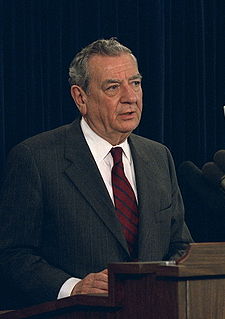 W
WDonald Jesse Atwood Jr. was appointed Deputy Secretary of Defense for U.S. President George H. W. Bush in 1989. Atwood wrote the proposal and directed the organization that developed and built the Apollo guidance system.
 W
WFrank Charles Carlucci III was an American politician and diplomat who served as the United States Secretary of Defense from 1987 to 1989 in the administration of President Ronald Reagan.
 W
WAshton Baldwin Carter is an American public policy professor who served as the 25th secretary of defense from February 2015 to January 2017. He is currently Director of the Belfer Center for Science & International Affairs at Harvard Kennedy School.
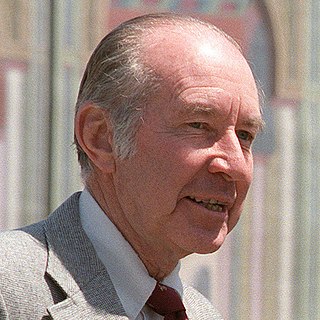 W
WWilliam Graham Claytor Jr. was an American lawyer, naval officer, and railroad, transportation and defense administrator for the United States government, working under the administrations of three US presidents.
 W
WWilliam Perry Clements Jr. was an American businessman and Republican Party politician who served two non-consecutive terms as Governor of Texas between 1979 and 1991. His terms bookended the sole term served by Mark Wells White, a Democrat who defeated Clements in the 1982 election only to lose his campaign for re-election in 1986.
 W
WRudy F. de Leon is an American former senior Department of Defense official, military adviser, lobbyist, and foreign policy adviser. He served as the Deputy Secretary of Defense, described as the "second-highest civilian defense position", from March 31, 2000 until March 16, 2001, and before appointed as Deputy Secretary he had served as Under Secretary of Defense for Personnel and Readiness from 1997 until 2000 and as Under Secretary of the Air Force from 1994 to 1997 in the administration of Bill Clinton.
 W
WJohn Mark Deutch is an American physical chemist and civil servant. He was the United States Deputy Secretary of Defense from 1994 to 1995 and Director of Central Intelligence (DCI) from May 10, 1995 until December 15, 1996. He is an emeritus Institute Professor at the Massachusetts Institute of Technology and serves on the boards of directors of Citigroup, Cummins, Raytheon, and Schlumberger Ltd. Deutch is also a member of the Trilateral Commission.
 W
WJames Henderson Douglas Jr. was a lawyer and senior-level official in the United States Government. He was Assistant Secretary of the Treasury, serving under both President Herbert Hoover and President Franklin Roosevelt. During the Eisenhower Administration, he served in the United States Department of Defense as Secretary of the Air Force and Deputy Secretary of Defense.
 W
WCharles William Duncan Jr. is an American entrepreneur, administrator, and politician best known for serving as U.S. Secretary of Energy on the Cabinet of President Jimmy Carter from 1979 to 1981. He had previously served as Carter's United States Deputy Secretary of Defense during the Iranian Revolution. Earlier, Duncan had run the family business, Duncan Coffee Company of Houston, Texas, for seven years, until the Coca-Cola Company acquired it in 1964. After seven years on the Coke board, Duncan became the corporation's president.
 W
WStephen Tyree Early was a U.S. journalist and government official. He served as the third White House Press Secretary under Franklin D. Roosevelt from 1933 to 1945 and as the acting Press Secretary under President Harry S. Truman in 1950 after the sudden death of Charles Griffith Ross. Early served as press secretary longer than any other person.
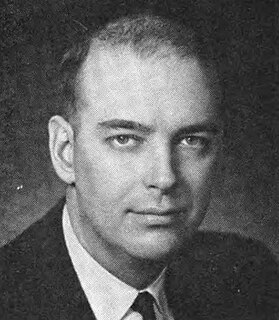 W
WRobert Fred Ellsworth was an American legislator and diplomat. He served as the United States Permanent Representative to NATO between 1969 and 1971. He had previously served three terms as a Republican Member of Congress from Kansas, from 1961 to 1967, and as an Assistant to the President during the presidency of Richard Nixon; under President Gerald Ford, he was Deputy Secretary of Defense. Ellsworth also served as assistant to the chairman of the Federal Maritime Commission.
 W
WGordon Richard England is an American politician and businessman who was the U.S. Deputy Secretary of Defense and twice as U.S. Secretary of the Navy in the administration of U.S. President George W. Bush.
 W
WWilliam Chapman Foster was an American businessman and high-ranking government official. He served as United States Under Secretary of Commerce and United States Deputy Secretary of Defense under President Harry Truman. Later, he served as the first United States Arms Control and Disarmament Agency director, under Presidents John F. Kennedy and Lyndon B. Johnson.
 W
WChristine Fox is an American military official and politician, who served as the Acting United States Deputy Secretary of Defense from December 3, 2013 until Robert Work's confirmation on May 1, 2014. With her appointment, Fox became the highest-ranking female official in history to serve in the United States Department of Defense.
 W
WThomas Sovereign Gates Jr. was an American politician and diplomat who served as Secretary of Defense from 1959 to 1961 and Secretary of the Navy from 1957 to 1959, both under President Dwight D. Eisenhower. During his tenure as Secretary of Defense, he established a task force to set nuclear target priorities. He also authorized U-2 reconnaissance flights, including the flight of Francis Gary Powers.
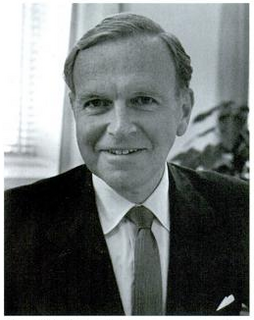 W
WRoswell Leavitt Gilpatric was a New York City corporate attorney and government official who served as Deputy Secretary of Defense from 1961–64, when he played a pivotal role in the high-stake strategies of the Cuban Missile Crisis, advising President John F. Kennedy as well as Robert McNamara and McGeorge Bundy on dealing with the Soviet nuclear missile threat. Gilpatric later served as Chairman of the Task Force on Nuclear Proliferation in 1964.
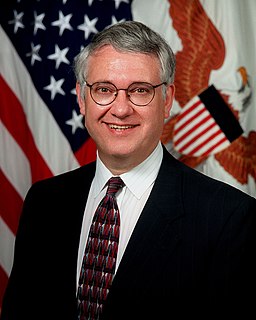 W
WJohn J. Hamre is a specialist in international studies, a former Washington government official and President and CEO of the Center for Strategic and International Studies, a position he has held with that think tank since 2000.
 W
WRoger Martin Kyes, born Rogers Martin Kyes, was a General Motors executive who served as United States Deputy Secretary of Defense in 1953 during the Eisenhower administration.
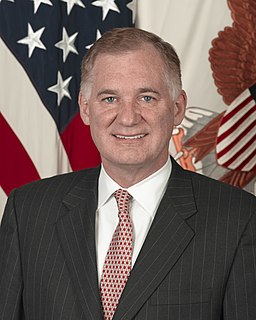 W
WWilliam J. Lynn III is a former United States Deputy Secretary of Defense. Before that he was Under Secretary of Defense (Comptroller) and a lobbyist for Raytheon.
 W
WJudith A. Miller is an American attorney and government official who served as General Counsel of the United States Department of Defense from 1994 to 1999, and in the private sector as general counsel for Bechtel Group.
 W
WPaul Henry Nitze was an American politician who served as United States Deputy Secretary of Defense, U.S. Secretary of the Navy, and Director of Policy Planning for the U.S. State Department. He is best known for being the principal author of NSC 68 and the co-founder of Team B. He helped shape Cold War defense policy over the course of numerous presidential administrations.
 W
WDavid L. Norquist is an American financial management professional and government official presently serving as the United States Deputy Secretary of Defense.
 W
WDavid Packard was an American electrical engineer and co-founder, with Bill Hewlett, of Hewlett-Packard (1939), serving as president (1947–64), CEO (1964–68), and Chairman of the Board of HP. He served as U.S. Deputy Secretary of Defense from 1969 to 1971 during the Nixon administration. Packard served as President of the Uniformed Services University of the Health Sciences (USU) from 1976 to 1981 and chairman of its Board of Regents from 1973 to 1982. He was a member of the Trilateral Commission. Packard was the recipient of the Presidential Medal of Freedom in 1988 and is noted for many technological innovations and philanthropic endeavors.
 W
WWilliam James Perry is an American mathematician, engineer, businessman, and civil servant who was the United States Secretary of Defense from February 3, 1994, to January 23, 1997, under President Bill Clinton. He also served as Deputy Secretary of Defense (1993–1994) and Under Secretary of Defense for Research and Engineering (1977–1981).
 W
WDonald Aubrey Quarles was a communications engineer, senior level executive with Bell Telephone Laboratories and Western Electric, and a top official in the United States Department of Defense during the Eisenhower Administration. He served as both Secretary of the Air Force and Deputy Secretary of Defense.
 W
WReuben B. Robertson Jr. was an American businessman who served as United States Deputy Secretary of Defense from 1955 to 1957.
 W
WDavid Kenneth Rush was a United States Ambassador who helped negotiate the groundbreaking Four-Power Agreement in 1971 that ended the post-war crisis over Berlin.
 W
WPatrick Michael Shanahan is a former United States federal government official who served as acting U.S. Secretary of Defense in 2019. President Donald Trump appointed Shanahan to the role after the resignation of Retired General James N. Mattis. Shanahan served as Deputy Secretary of Defense from 2017 to 2019. He previously spent 30 years at Boeing in a variety of roles.
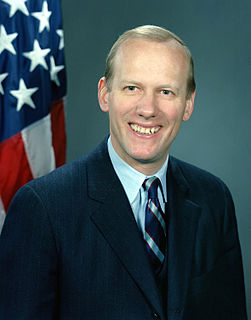 W
WWilliam Howard Taft IV is an attorney who has served in the United States government under several Republican administrations. He is the son of William Howard Taft III and the great-grandson of President William Howard Taft.
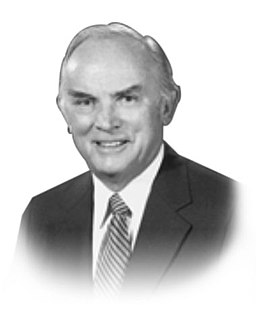 W
WWilliam Paul Thayer was an American test pilot, flying ace, aviation executive, and United States Deputy Secretary of Defense during the Reagan Administration.
 W
WCyrus Roberts Vance was an American lawyer and United States Secretary of State under President Jimmy Carter from 1977 to 1980. Prior to serving in that position, he was the United States Deputy Secretary of Defense in the Johnson administration. During the Kennedy administration he was Secretary of the Army and General Counsel of the Department of Defense.
 W
WJohn Patrick White was an American university professor and a government official who served in the Clinton Administration.
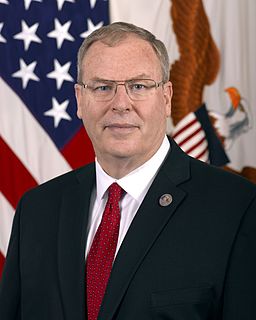 W
WRobert Orton Work is an American national security professional who served as the 32nd United States Deputy Secretary of Defense for both the Obama and Trump administrations from 2014 to 2017. Prior to that, Work was the United States Under Secretary of the Navy from 2009 to 2013, and before that served as a colonel in the United States Marine Corps; Work retired in 2001 and worked as a civilian at the Center for Strategic and Budgetary Assessments (CSBA) and the George Washington University in various positions relating to military and strategic study. From 2013 to 2014, he was the CEO of the Center for a New American Security (CNAS).